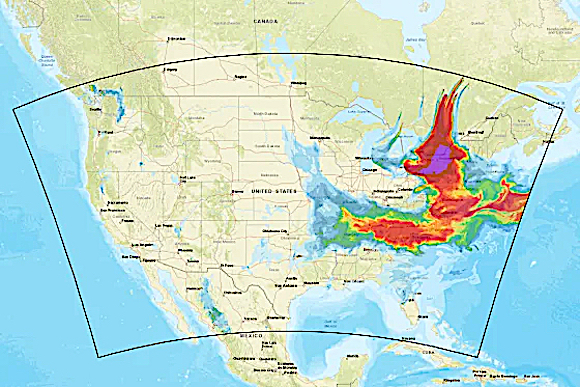ImpactAlpha, June 9 – The past eight years have been the warmest on record, the World Meteorological Organization has declared. It should not be surprising, then, that eight of the worst wildfire seasons on record have also occurred in the past decade, as large swaths of Canada and the US were reminded of this week.
The Canadian wildfires pushed air pollution indexes above 400 in some parts of the densely populated east coast, endangering health and disrupting everything from flights to baseball games. That such costs are not factored into economic accounts of climate costs suggests how much we are underestimating the true impact of global warming – to health, ecosystems and the economy.
Also omitted in calculations for one key measure – the US government’s social cost of carbon – are temperature extremes (vs. averages), humidity or “wet bulb” temperatures, water consumption, climate migration and crucial ecosystem services. The Biden administration is considering more than tripling the official social cost, pegged at $51 today.
Wildfires are also downplayed in countries’ emissions reporting, even though wildfire smoke accounts for some 20% of global emissions – as much as transportation.
The costs are becoming hard to ignore. State Farm and AllState will no longer insure homes in California, citing wildfire risk. Florida is grappling with ballooning insurance costs for hurricanes and floods. Arizona is putting the brakes on new housing development around Phoenix due to dwindling groundwater supplies. Even lawmakers in Washington DC could not escape the smokey air this week.
Reality is when it happens to you, as they say. With global warming on track to hit the 1.5 °C threshold (2.7 °F) by 2037, let’s take this as the wakeup call that it is.











